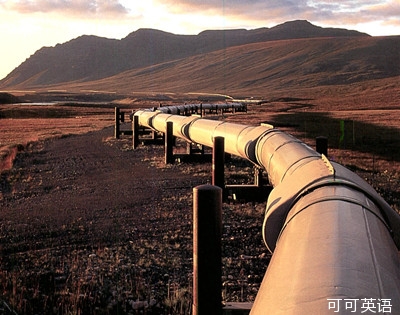A Venezuelan oil minister once referred to his country's main export as the "devil's excrement." We'll see how the death of Hugo Chavez affects production levels of this Faustian fuel—which influences both the global oil market and the climate.
委內瑞拉的一名石油部長曾把自己國家的主要出口稱為“魔鬼的糞便”。我們將看到烏戈· 查韋斯的逝世會如何影響這種“浮士德式”的石油生產水平,進而影響全球石油市場和氣候。

Venezuela's oil has problematic qualities. The thick, tar-like oil requires extra heat to flow. Once finally on the move, it's fed to refineries where the heavy oil must be what the engineers call "cracked." That chemical process removes excess carbon and readies the oil to be turned into the petroleum products we all use, from gasoline to plastics. The extra carbon, known as pet coke, is often burned and is more highly polluting than even coal.
委內瑞拉的石油質量有問題。這種石油濃稠、類似于柏油,要使它流動需要額外的熱量。石油流入煉油廠后,工程師們就會忙著“裂化”這種重油。這個化學過程能夠去除多余的碳,將石油轉變為大家都能使用的汽油。多余的碳被稱作石油焦,常被燒掉,它造成的污染甚至比煤更嚴重。
These issues affect more than Venezuela. The Keystone XL pipeline is a bid in part to bring oil from Canada's tar sands to some refineries on the Gulf Coast that can handle it precisely because they were built to handle Venezuela's tarry mix. If more Venezuelan oil begins to flow the Keystone pipeline might prove extraneous.
不僅委內瑞拉受到這些問題的影響。美國的輸油管道項目計劃將加拿大的瀝青砂加工成石油,然后輸入到墨西哥灣岸區的一些煉油廠進行加工。這些煉油廠業務熟練,因為當初建廠就是用來處理委內瑞拉的煤焦油混合物。如果委內瑞拉有更多的石油流入美國,那么輸油管道項目就變得多余了。
But whether Canadian tar sands or Venezuelan heavy crude, more thick oil means more CO2 in the atmosphere. And that means a climate ever more hellish.
然而無論是加拿大瀝青砂還是委內瑞拉的重油,成分越稠就意味著大氣中的二氧化碳會變得更多,也意味著氣候會變得更加惡劣。
來源:可可英語 http://www.ccdyzl.cn/broadcast/201303/230214.shtml












